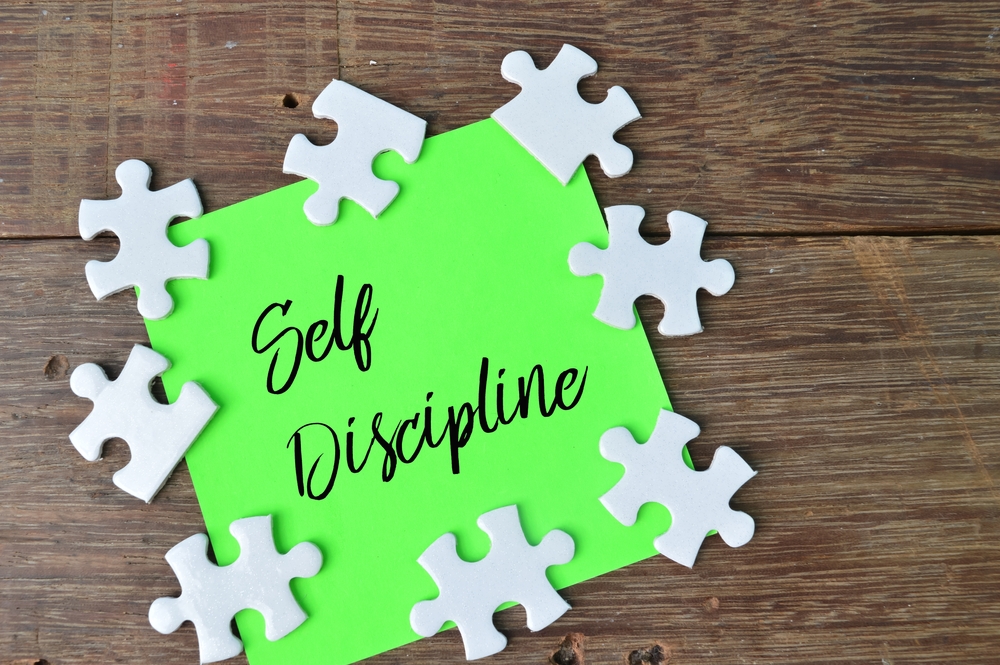Getting an online master’s degree requires the same intellectual curiosity, academic skills, and time management capabilities as traditional classroom work. However, the virtual environment can challenge even the most prepared students.
The question is, what do you need to do before starting your distance education program to prepare?
There are many factors to consider, from having the right tools for online learning to creating a workspace conducive to learning remotely to understanding what factors to consider when choosing an online program. This guide explores eight tips for mastering the virtual classroom to prepare you for successful online learning.
- Embracing the Online Learning Environment
- Steps to Becoming a Successful Online Student
- Navigating Online Courses and Virtual Classrooms
- Creating an Effective Learning Environment at Home
- Mastering the Art of Online Group Projects
- Balancing the Learning Curve: The Transition from Traditional to Virtual Classrooms
- Ensuring Quality Education in Your Online Master’s Degree
- Preparing for Success in the Increasingly Popular World of Remote Learning
See Also: 20 Accredited Online Colleges That Offer Laptops
Embracing the Online Learning Environment

In many cases, the coursework in your online master’s program is identical to what on-campus students must do to graduate. But the fact remains that navigating the challenges of online degree programs is something your on-campus classmates don’t have to worry about. Let’s explore some of these challenges.
The Virtual Classroom: What’s the Difference?
When transitioning from traditional to online classroom learning, the obvious difference is that you’re participating in your program from afar. Though many programs include live lectures and activities that allow you to participate in discussions with your professors and classmates, you aren’t in the same room feeding off one another’s energy. It’s just a different experience.
Likewise, taking a course online requires an acute focus on assignments, exams, and other important due dates. Many online courses don’t have set meeting times, and in some cases, they might allow you to work at your own pace. Students must be extremely organized, self-motivated, and excellent time managers.
This isn’t to say you don’t need these and other skills to be a successful student on campus; the need is simply heightened as a virtual student.
See Also: 30 Top Cheapest Online Colleges
Essential Tools for Online Learning: High Speed Internet and Beyond
The essential tools for online learning success include a computer and a high speed internet connection.

Aside from that, you’ll also have books and other required learning materials like computer software, accessories for your computer (e.g., a mouse, keyboard, printer, and so forth), and a comfortable desk and chair where you can work. It might also be worth buying traditional classroom tools, such as a notebook or two, pens, and a planner to track due dates.
Adapting to the Unique Challenges of Learning Online
As an online student, one of the biggest obstacles is finding the motivation to complete your assignments promptly. As noted earlier, in the absence of a set class meeting time or specific due dates, it’s easy to fall into the trap of “I’ll do that later.” It’s the double-edged sword of studying online – you can study at any time and virtually any place, but that means it might be easy to push your work off later.
So, how to succeed in online master’s programs really comes down to your ability to get motivated and stay motivated throughout your studies. There are many different ways to do this, a few of the most important of which are discussed in the next section.
See Also: Top Easiest Master Degree Online Programs
Steps to Becoming a Successful Online Student

If you’ve never taken classes online, it can be overwhelming when you begin your first class. Relying on the knowledge and skills you gained in your undergraduate program will certainly help you find success in the online learning environment. Still, you’ll need to develop key skills for attending school online to make the most of your experience.
See Also: How to Choose an Affordable Online Master’s Program
The Importance of Actively Participating in Online Class Discussions
The importance of actively participating in online discussions cannot be overstated. It is one of the most effective online learning strategies for students.
Not only does active participation in online class discussions help you be more engaged in the learning process, but it also helps you build a deeper understanding of the course material. Asking questions, answering your classmates’ questions, and interacting with your professor help you encode the information you’ve learned. As important, you can learn how to apply what you’ve learned.
How to Balance Many Online Classes: Effective Time Management Strategies

Balancing online classes and time management all but requires you to keep a calendar of all due dates for each class over the semester. Doing so helps you create short-term and long-term goals while also helping you effectively manage your time. An easy-to-read and organized calendar with a to-do list helps you determine essential tasks and which assignments can wait until later.
A great time management strategy for getting an education online (and in-person, too) is to “chunk” larger tasks into smaller ones. Chunking helps you identify the important steps needed to complete a larger task. It also helps keep you organized and directs you to be more efficient.
For many students taking multiple classes online, it’s helpful to have designated times to work on specific courses. Doing so helps get you in a routine and stay in that routine over the course of the term. Simulating a traditional academic experience in which you have classes at specific times can do wonders for helping you keep up on assignments, too.
But it’s important to take breaks from your online studies, too. Powering through for hours on end usually leads to frustration and fatigue. There are better ways to manage your time! Instead, try working for an hour or so, then take a 10-minute break to let your mind and body rest before returning to work. Better still, try the Pomodoro technique to kick your time management capabilities into overdrive.
The Role of Self-Discipline in Ensuring Success in Your Online Program
As noted earlier, online studies require students to have the self-discipline to stay on schedule without much – if any – oversight from professors. As a graduate student, this would be the case anyway, but the onus of responsibility is more squarely on your shoulders as an online graduate student.
Again, having set times to work on your courses can help maintain the discipline needed to finish your school work promptly. Consider having a study buddy or two as well – you can keep tabs on one another, offer encouragement, and help build some accountability to help you all complete assignments in due time.
Navigating Online Courses and Virtual Classrooms

Online teaching and learning really aren’t all that different from in-person learning, apart from the fact that you and your classmates are all at different locations. Many online students enroll in an online degree for this reason – the freedom to study when and where they want.
However, to be an effective online student, you need to bear a few things in mind:
- Understanding the structure of an online course is vital. Is it synchronous (the course has a set schedule with specific meeting times) or asynchronous (you learn independently within a specific timeframe)? Synchronous courses require more planning to ensure you’re logged on at the required times. Asynchronous courses offer students greater freedom to study but also require more self-discipline than synchronous classes..
- Familiarizing yourself with online teaching methods is equally as important. Your courses might have live meetings, pre-recorded lectures, or group projects. You might be asked to participate in weekly discussion board posts, conduct independent research, or complete reading assignments or papers, too. Review your course syllabi at the start of the semester so you understand what you need to do, when you need to do it, and the resources you might need to be successful.
- Also, familiarize yourself with the methods by which your classes are delivered. There are many different coursework platforms (e.g., Blackboard, Canvas), each with its unique layout and user experience. It’s best to get the lay of the land before you start your courses, that way, you can dive right into your coursework rather than trying to figure out the classroom environment.
Engaging with the Course Content: More than Just Reading
Above all else, engaging with the course content is paramount. Getting a graduate degree is not just about reading the required texts and passing exams.
Instead, many graduate programs require you to demonstrate mastery of the content via experiential learning like a practicum, internship, or research project. To do so, you must learn how to engage with your reading and other materials, determine what you don’t know or understand, and explore other resources to help you develop the understanding you lack.
Creating an Effective Learning Environment at Home
Some online learners can sit down in a busy coffee shop and have no issue doing work for school. But most of us require a quiet place to concentrate on the requirements of our university degree program. The steps on creating an effective study space for online classes outlined below will help you build a high-quality learning environment that gives you the peace and quiet you need to be successful.
Crafting Your Ideal Study Space: Beyond the Computer Screen
As noted earlier, having resources like the internet, accessories for your laptop or PC, a comfortable desk and chair, and so forth will go a long way in facilitating your ability to complete your remote education successfully. Some students also benefit from having a white noise machine to drown out ambient noise, adjustable lighting to help minimize eye strain, and special blue-light-reducing glasses to help minimize eye strain as well.
Minimizing Distractions: Close Other Tabs and Focus
When it’s time to study, help yourself focus by closing all unrelated browser tabs and windows, apps, and programs. Put your phone on silent or do not disturb, too. If necessary, use a program like Freedom to give you an edge on blocking distractions.
Accessing Tutoring Services and Other Resources for Distance Learning
Building an environment at home that helps you concentrate on getting your degree is about more than just what you bring to the table. Your college or university will have many different services available to you as a distance learner, including:
- Technical support
- Subject-area tutoring
- Writing assistance for online students
- Tips for managing school, work, and life
- Career services
Many schools also offer tips for being a successful online student, mental health counseling for students, and assistance finding work studies and internships.
See Also: Financial Aid Tips for Online College
Mastering the Art of Online Group Projects

A popular online teaching tool is group projects. This type of learning comes with some challenges but also offers many benefits.
Collaborating in a Virtual Setting: Microsoft Teams and Other Platforms
Whether you use Microsoft Teams, Zoom, Google Meet, or some other app or program, collaborating on your group work will be so much easier if you harness the power of modern technology.
Often, the reason why virtual groups aren’t successful is because of an inability to stay connected, to communicate, and to be organized. Platforms like those listed above help overcome those obstacles so you can work effectively with other students, and everyone can stay on schedule to complete their part of the project on time.
Overcoming Challenges in Online Group Work
There are plenty of challenges to working as a group online. But there are many things you can do to overcome these obstacles.
First, the best practices for online group projects start with being an effective communicator. As online students, you and your group mates must be in constant contact to know who is doing what, how things are progressing, and if anyone needs extra help to complete their part of the task.
Second, use a shared calendar so everyone in the group can check in on the overall progress of the task. This will also help each group member stay on schedule and avoid procrastination.
Third, as discussed earlier, chunking is a great way to break down a large project into small, achievable tasks. Work together to create a to do list of small tasks that everyone can work towards.
The Benefits of Group Projects in Online Courses
Though online group projects have challenges, they also benefit online learners. Not only does group work help build rapport with your classmates, but it also allows you to integrate what you’ve learned more thoroughly through small group discussions and research.
Likewise, group work helps you identify your strengths and weaknesses as a student and team member, and can help you work on building new skills that make you a more successful online student.
Virtual group work helps students learn to collaborate, too. Working effectively with others is a critical skill for many careers, and learning to actively participate in group learning also benefits your future studies.
Balancing the Learning Curve: The Transition from Traditional to Virtual Classrooms
To be a successful online student, you need to make the transition from “traditional learning mode” to “virtual learning mode.” Fortunately, combining new skills and past experiences can help you do just that.
From In-Person Learning to Online Classes: What to Expect
As discussed earlier, an online course is a lot like learning in person, with the obvious difference that you aren’t “in class” with everyone else. Apart from that, you’ll find that most classes you take remotely have the same professors, textbooks, coursework, and so on.
Perhaps the biggest shock students have when studying virtually is the need to be hyper-organized and efficient with time. You can do both by using the tools, resources, and tips outlined throughout this article!
Using Your Previous School Experiences to Succeed Online
Whether you’ve studied in a virtual setting before or not, you already have a wealth of skills that will help you successfully complete your remote degree program.
Your undergraduate studies undoubtedly helped you develop into a master of time management, an organized learner, and a good consumer of information. Likewise, you likely have excellent communication and writing skills and work well with other students in a group setting.
Moreover, your undergraduate professors likely passed on tips and strategies that helped you successfully complete your bachelor’s degree. You can utilize those skills to complete your graduate degree with success, too.
How Online Learning Can Enhance Your Learning Process
One of the biggest benefits of learning remotely is the flexibility to learn what you want, when you want, from wherever you want. You can more easily work your school schedule around work and other commitments and learn on the go – during your morning commute, on vacation, and so forth.
The independent nature of online learning can also be a boon to your academic confidence. Though you will be able to easily communicate with your professors and other students, there will be times that you need to figure things out on your own. Enhanced problem-solving abilities, improved analytical skills, and better communication skills can all result from getting your degree remotely.
Ensuring Quality Education in Your Online Master’s Degree
Step one in ensuring quality education in online master’s degrees is finding a high-quality program to begin with. Most online degree programs are well-designed, expertly delivered, and accredited. But some are certainly better than others.
Doing your due diligence to find a solid degree program from a reputable school will go a long way in helping you get a good education for your money. Other ways to improve your educational experience are outlined below.
Meeting Course Objectives: Tips for Prospective Students
Getting a great education depends in large part on your ability to engage with the course materials in an effective and meaningful way. Part of this task is to meet the objectives for each course. But how do you do that?
- Read the syllabus. It contains all the information you need to know about the course.
- Ask questions. If you’re confused about a particular course objective, someone else is too!
- Make a to-do list. Nothing helps you stay organized and on top of assignments like a good ol’ list!
- Give yourself plenty of time to accomplish objectives. Doing things last minute is part of the college process, but it’s not a good part of the process. By planning ahead, students like you can make sure that course objectives don’t go unmet.
- Collaborate with other students. Just because you’re studying virtually doesn’t mean you can’t support one another’s learning!
Getting the Most Out of Your Online Degree: The Essential Part of Active Engagement
Remember that active engagement is perhaps the most important component of getting a virtual degree. Just going through the motions won’t do you any favors. Instead, dive deep into what you’re learning. Be inquisitive, ask questions, and do outside research to get a more comprehensive view of the topics you’re studying.
Being actively engaged is especially helpful in live online learning. For example, if your class meets for a live virtual session online, your active participation sparks others to chime in and participate as well. The more active you and other students are, the better the quality of the instruction and the more opportunities there are for all of you to gain value from your studies.
Completing Assignments on Time: The Key to Being a Successful Online Learner
Many of us fight procrastination. But people who are successful in their virtual learning are often the ones who can overcome the urge to procrastinate to get their work done quickly.
The tips explored earlier regarding self-discipline and managing one’s time apply here, too. Your success in a virtual learning situation depends in large part on your ability to do the necessary work with little or no oversight. Use a list, an app, the buddy system – whatever it takes to keep you on track to complete your assignments before they’re due.
Preparing for Success in the Increasingly Popular World of Remote Learning
There is no doubt that virtual learning is a popular way for students to get a college degree. The first generations of virtual students had far fewer resources than students today. But, learning online is still a challenge. Use the three tips for preparing for successful remote learning experiences below to get a head start on your distance learning.
The Importance of a Reliable Internet Connection
Earlier, the point was made to have fast internet. But the speed of your internet doesn’t matter if the connection isn’t also reliable. If your current internet service provider experiences a lot of downtime, you should consider switching to a provider with a reputation for rock-solid service.
How to Feel Confident and Prepared for Online Instruction
Teaching online requires an excellent understanding of the material, good technological skills, and an ability to connect with students that are hundreds or thousands of miles away. So, your professors need to work hard to make this work, but you do, too. Get yourself prepared for a virtual education by:
- Reading all required materials beforehand.
- Take good notes for later reference.
- Be an active participant in online discussions, class meetings, group projects, and so forth.
- Ask your professor for clarification if you’re confused about a topic, an assignment, or what’s expected of you.
- Offer constructive feedback. If something about the course simply isn’t working for you, find a way to share this with your professor that is constructive and conducive to making a positive change for you and other students.
Choosing the Right University for Your Online Master’s Program
As mentioned earlier, choosing the right school for your graduate studies is the first step in this process. Without a solid foundation of a quality program from a quality school, it’s hard to feel confident in what you’re studying.
So, how do you choose a quality school?
First, explore school rankings, and look specifically at how the school’s online degrees rank. It also helps to attend an accredited online college. Accredited schools have to meet stringent criteria to retain their accreditation, which ensures you have a quality academic experience on par with what students get at other accredited schools.
Next, investigate the faculty’s credentials. What’s required of a good graduate school professor is much different from what high school teachers or even undergraduate professors must have in their toolkit. Furthermore, teaching online requires certain skills and talents, too. Find out as much as you can about the faculty’s experience teaching in this kind of environment.
Compare the tuition and fees from one school to the next. Also examine the financial aid opportunities that each school offers. Ask each school about the support services they provide to online students. The more resources you’re given, the more likely you are to succeed!
